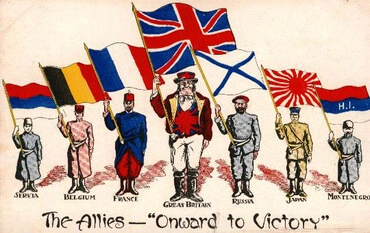1
Ja Issand rääkis Moosesega, öeldes:
2
'Räägi Iisraeli lastega ja ütle neile: Kui keegi erilise tõotusena Issandale tahab anda inimhingi hindeväärtuse alusel,
3
siis olgu hindeväärtuseks meesterahva eest: kahekümneaastastest kuuekümneaastasteni olgu hindeväärtuseks viiskümmend hõbeseeklit püha seekli järgi!
4
Aga kui ta on naisterahvas, siis olgu hindeväärtuseks kolmkümmend seeklit!
5
Kui vanus on viiest aastast kahekümne aastani, siis olgu hindeväärtuseks meesterahva eest kakskümmend seeklit ja naisterahva eest kümme seeklit!
6
Kui vanus on ühest kuust viie aastani, siis olgu hindeväärtuseks meesterahva eest viis hõbeseeklit ja naisterahva eest kolm hõbeseeklit!
7
Kui keegi on kuuskümmend aastat vana ja üle selle, siis olgu hindeväärtuseks viisteist seeklit, kui ta on meesterahvas, ja kümme seeklit, kui ta on naisterahvas!
8
Aga kui tõotaja on vaesem, kui hindeväärtus nõuab, siis seatagu tõotatu preestri ette ja preester hinnaku teda; vastavalt sellele, nagu tõotaja jõud lubab, hinnaku preester teda!
9
Ja kui on tegemist mõne loomaga, keda tohib tuua ohvrianniks Issandale, siis olgu igaüks, kelle ta Issandale annab, püha!
10
Ta ei tohi seda asendada ega vahetada head halva või halba hea vastu; kui ta aga siiski vahetab looma loomaga, siis olgu ka selle asendaja püha!
11
Aga kui see on mõni roojane loom, keda ei tohi tuua ohvrianniks Issandale, siis ta seadku lojus preestri ette
12
ja preester hinnaku seda heaks või halvaks; nagu on preestri hinnang, nõnda jäägu!
13
Aga kui tooja siiski tahab seda lunastada, siis ta lisagu viies osa hindeväärtusest!
14
Ja kui keegi pühitseb oma koja pühaks Issandale, siis preester hinnaku seda heaks või halvaks; nagu preester seda hindab, nõnda jäägu!
15
Aga kui pühitseja tahab oma koja lunastada, siis ta lisagu viies osa hinderahast ja see saab jälle tema omaks!
16
Ja kui keegi pühitseb Issandale tüki oma päruspõllust, siis olgu hindeväärtus selle seemne järgi: viis vakka otri - viiskümmend seeklit hõbedat.
17
Kui ta pühitseb oma põllu kohe juubeliaastast arvates, siis jäägu hindeväärtus jõusse,
18
aga kui ta pühitseb oma põllu alles pärast juubeliaastat, siis preester arvestagu temale raha aastate järgi, mis on jäänud järgmise juubeliaastani, ja see arvatagu maha hindeväärtusest!
19
Ja kui see, kes põllu on pühitsenud, tahab seda siiski lunastada, siis ta lisagu viies osa hindeväärtusest ja see jääb siis tema omaks!
20
Aga kui ta põldu ei lunasta, vaid müüb põllu kellelegi teisele, siis see ei ole enam lunastatav,
21
vaid põld, saades juubeliaastal vabaks, olgu pühitsetud Issandale nagu pühendatud põld; see saagu preestri omandiks!
22
Ja kui keegi oma ostetud põllu, mis ei ole tema päruspõld, pühitseb Issandale,
23
siis preester arvestagu temale oma hinnangu järgi hind kuni juubeliaastani ja ta andku määratud hind veel samal päeval Issandale kui pühitsetud and!
24
Juubeliaastal mingu põld jälle sellele, kellelt see on ostetud ja kelle pärusmaa see on!
25
Iga hinnang sündigu püha seekli järgi; seeklis olgu kakskümmend geera!
26
Aga esmasündinut, kes kariloomadest esmasündinuna on määratud Issandale, ei tohi keegi pühitseda, olgu see härg, lammas või kits, sest see on juba Issanda oma.
27
Ja kui see on roojastest loomadest, siis ostetagu see vabaks vastavalt hindeväärtusele ja lisatagu sellele veel viies osa; kui seda ei lunastata, siis müüdagu see vastavalt hindeväärtusele!
28
Aga ainsatki pühendatut, mille keegi on pühendanud Issandale kõigest, mis tal on: inimestest ja lojustest ja päruspõllust - ei tohi müüa ega lunastada; kõik pühendatu kuulub Issandale kui väga püha.
29
Ühtegi vande alla pandut, kes inimeste seast on pandud vande alla, ei tohi osta vabaks - ta tuleb surmata!
30
Ja kõik maa kümnis maa seemnest ja puude viljast on Issanda päralt; see on pühitsetud Issandale.
31
Aga kui keegi siiski oma kümnisest tahab midagi lunastada, siis ta lisagu sellele veel viies osa sellest!
32
Ja kõik kümnis veistest, lammastest ja kitsedest, kõigist, kes karjasekepi alt läbi käivad - see kümnis on pühitsetud Issandale:
33
ei tule uurida hea ja halva vahel ega tohi ka vahetada; aga kui ometi vahetatakse, siis olgu ka selle asendaja püha - seda ei tohi lunastada!'
34
Need on käsud, mis Issand Siinai mäel andis Moosesele Iisraeli laste jaoks.







